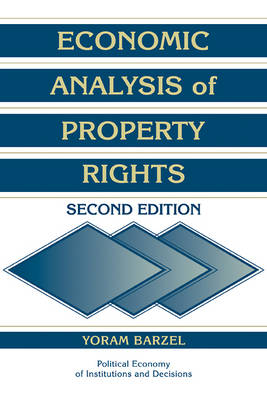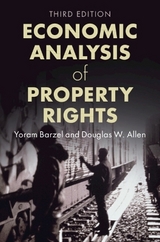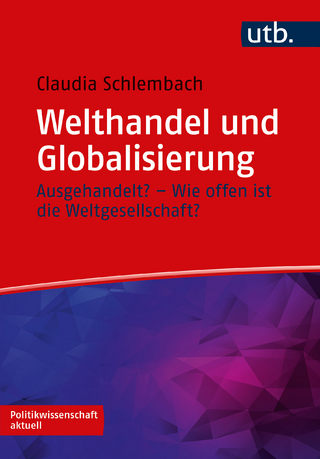
Economic Analysis of Property Rights
Seiten
1997
|
2nd Revised edition
Cambridge University Press (Verlag)
978-0-521-59713-5 (ISBN)
Cambridge University Press (Verlag)
978-0-521-59713-5 (ISBN)
- Titel erscheint in neuer Auflage
- Artikel merken
Zu diesem Artikel existiert eine Nachauflage
The cost of measuring accurately all assets' attributes is prohibitive. Therefore, rights are never fully delineated and others may appropriate one's assets. This study offers a unified theoretical structure to analyse exchange and formation of economic rights. The central question is how people allocate resources and organise their activities to maximise the value of their rights.
This is a study of the way individuals organise the use of resources in order to maximise the value of their economic rights over these resources. Property rights and all forms of organisation result from people's deliberate actions. In the tradition of Coase, this study offers a unified theoretical structure to deal with exchange, rights formation and organisation which traditional economic theory assumes away. A person's economic property rights over an asset are defined here as the person's ability to gain from the asset by direct consumption or by exchange. It is prohibitively costly to measure accurately all assets' attributes; therefore, rights to them are never fully delineated. Property is consequently in danger of appropriation by others. Individuals enhance their rights by such actions as the protection and better delineation of their assets. In this new edition, Professor Barzel introduces the central role of equity capital as a guarantor of the activities of the firm and elaborates on the distinction between economic rights and legal rights.
This is a study of the way individuals organise the use of resources in order to maximise the value of their economic rights over these resources. Property rights and all forms of organisation result from people's deliberate actions. In the tradition of Coase, this study offers a unified theoretical structure to deal with exchange, rights formation and organisation which traditional economic theory assumes away. A person's economic property rights over an asset are defined here as the person's ability to gain from the asset by direct consumption or by exchange. It is prohibitively costly to measure accurately all assets' attributes; therefore, rights to them are never fully delineated. Property is consequently in danger of appropriation by others. Individuals enhance their rights by such actions as the protection and better delineation of their assets. In this new edition, Professor Barzel introduces the central role of equity capital as a guarantor of the activities of the firm and elaborates on the distinction between economic rights and legal rights.
Introduction; 1. The property rights model; 2. The public domain: rationing by waiting and price controls; 3. Contract choice: the tenancy contract; 4. Divided ownership; 5. The old firm and the new organization; 6. The formation of rights; 7. Slavery; 8. Wealth maximization constraints on property rights; 9. Property rights and non-market allocation; 10. Additional property rights applications; 11. The property rights model: recapitulation; References.
| Erscheint lt. Verlag | 13.4.1997 |
|---|---|
| Reihe/Serie | Political Economy of Institutions and Decisions |
| Zusatzinfo | 7 Line drawings, unspecified |
| Verlagsort | Cambridge |
| Sprache | englisch |
| Maße | 152 x 225 mm |
| Gewicht | 248 g |
| Themenwelt | Recht / Steuern ► EU / Internationales Recht |
| Sozialwissenschaften ► Politik / Verwaltung | |
| Wirtschaft ► Volkswirtschaftslehre ► Wirtschaftspolitik | |
| ISBN-10 | 0-521-59713-7 / 0521597137 |
| ISBN-13 | 978-0-521-59713-5 / 9780521597135 |
| Zustand | Neuware |
| Haben Sie eine Frage zum Produkt? |
Mehr entdecken
aus dem Bereich
aus dem Bereich
ausgehandelt? – wie offen ist die Weltgesellschaft?
Buch | Softcover (2024)
UTB (Verlag)
22,00 €
Theorie und Anwendung
Buch | Hardcover (2024)
Vahlen, Franz (Verlag)
39,80 €
wie sich unsere Wirtschaftspolitik ändern muss, damit wir globale …
Buch | Hardcover (2024)
Wiley-VCH (Verlag)
39,99 €



